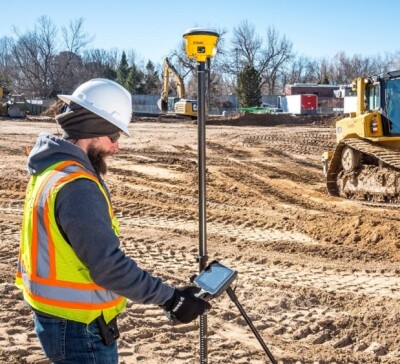The technology industry – not just the geospatial and AEC side of things, but the sector at large – tends to be a reactive one, at least in some instances. That’s obviously not to say there is not plenty of original, impactful, and impressive innovation. This is the base on which the space has been built. Still, there are times when a certain development catches on, particularly in the mainstream beyond the insiders of the industry, and we see companies pivot major portions of their company strategy, or even the entire thing, to build towards this latest trend. We see it time and time again, sometimes to great success, sometimes not so much. Right now, it’s happening in real time due to the sudden and explosive buzz around the general idea of artificial intelligence (AI).
Now, it goes without saying for anyone reading this blog that AI is not at all a new thing. It’s been around in some form or another for decades. While its power and scope has clearly grown, and is in the midst of a major growth cycle, it’s long been a part of our lives, down to things we take for granted at this point like spam filters for your inbox. Moving our focus to the present day, the buzz is astronomical in the wake of new, consumer-focused AI models hitting the market over the last year, with ChatGPT being the most notable. It’s put the idea of AI in headlines, and the result has been companies like Microsoft, Google, and Meta, among many others, pivoting significant portions of their corporate strategies toward AI.
It’s worth taking a second to talk about ChatGPT specifically, as this really is the tool that has generated the vast majority of this buzz, to the surprise of even the executives at the company behind the tool. I’m not trying to say it’s not an impressive tool. It is. In fact, I’ve used it myself plenty of times, for both professional (don’t worry, I’m not letting ChatGPT write our articles) and personal functions. Generally speaking, it’s been useful! It’s also not what many outside of the industry think it is – at its heart, it’s an ultra-powerful autocomplete machine trained on an unfathomable amount of text around the web – and is still prone to plenty of errors. But it does feel conversational, and it's (mostly) meeting users’ needs. Companies reacting to this buzz are not stupid, and there’s certainly merit to chasing it.

So, why are we talking about this here? Because our industries are no more immune to reacting to massive hype than any other, which, again, is not meant as a negative. Last month at Geo Week 2023, I had a lot of conversations with people in many different sections of our industry, talking a lot about what people see as the trends coming in the current calendar year. The most common variety of answer I heard pointed to the success of ChatGPT (which, to be fair, arguably reached its apex right around the time of our conference), something that certainly piqued my interest coming from extremely smart people who are not going to chase a shiny new toy just for the sake of it. It’s something we plan on digging into at Geo Week News throughout this year, but I felt compelled to share some quick, initial thoughts on the topic as it’s been stuck in my brain since the end of the show.
Just as in the tech space in general, as discussed above, the geospatial and GIS industries have long leaned on power AI. There are a lot of ways in which this comes through, particularly with most software on the market, with things like classification, segmentation, and prediction making being the most common uses of AI. These tools, which continue to improve, have completely changed workflows and the things industries are able to do. Just as one example, I’ve talked to people who used to only be able to perform certain jobs in the summer when interns were available, because those were the only workers they could get to do the tedious job of classification of a map. Even putting aside how much more quickly an AI tool can complete the task, the impact was immediately felt simply by the fact that they could not take on these jobs all year. The point is, AI has already made a considerable impact in the industry.
My question is: Will this latest boom really change things? I don’t have a firm answer here, to be clear. As I said, we plan to dig into this more as the year goes on, and I’m sure we’ll hear a variety of viewpoints. I do, however, have two broad ways I see this going, which are crucially not mutually exclusive. For one thing, I expect AI tools to noticeably and rapidly improve. Everybody is pouring resources into this, and there’s no way that doesn’t end up with notable innovation. Professionals’ lives will be made easier. I have a hard time believing that won’t happen in some form.
On top of that, I also expect a lot of hyperbolic marketing around AI tools already in existence. When there is a singular topic of conversation dominating the news, companies will take advantage and herald their version of whatever the en vogue tool is. Plenty of companies in our industry really do have incredible AI powering a lot of their tools, so I’m certainly not saying to dismiss anything AI-related out of hand. Instead, I’d just caution about getting too swept up in the hype cycle. Get details about capabilities, biases, training data, and really any bit of information you can get. In most cases, I suspect you’ll find things that will truly help your work.
But I also suspect you’ll find some established capabilities being repackaged to take advantage of the hype cycle. This is simple, obvious advice, but it’s important to question these features. AI is extremely powerful and can have a profound effect on nearly every industry. But the hype is out of control today, leading to an environment which should lead to innovation, but also demands caution.






